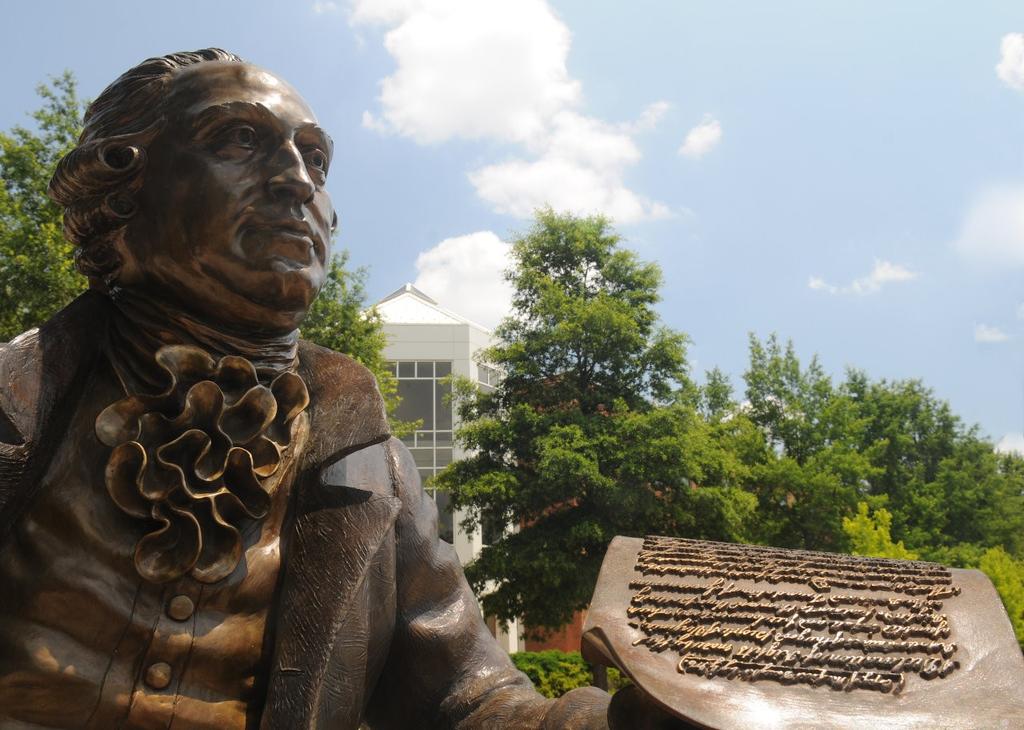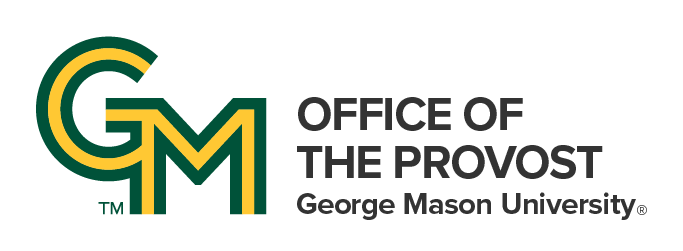
Ensure that you have access to an up to date Google Chrome web browser.

A Renewal, Promotion and Tenure session was held with Vice Provost for Faculty Affairs Kim Eby on October 28, 2025.
George Mason University’s tenure-line faculty are central to our success in growing our R1 status and ensuring high-quality learning experiences.
George Mason’s strategic vision is ambitious, seeking to achieve what few institutions have accomplished. Our goals include both strengthening our reputation as a high-caliber research-intensive institution, while simultaneously expanding our access to excellence through continuing to serve a highly diverse student population. Meeting these seemingly contradictory goals requires bold thinking about how we recruit, retain, and support all of our faculty communities.
Supporting tenure-line faculty going up for renewal, promotion, and tenure is key. Strengthening an environment that values faculty members’ work and contributions to George Mason’s teaching and scholarly communities, and our national reputation, is a fundamental to sustaining a thriving community.
To support George Mason’s renewal, promotion, and tenure processes, we have invested in Interfolio’s Review, Promotion, and Tenure (RPT) content management system. This RPT tool automates existing workflows and processes for tenure-line faculty renewal, promotion, and tenure into a unified content management system. This streamlines the RPT experience for candidates and reviewers at all levels within one secure and configurable system. Additional details can be found at Mason FACTs.
Guidance for Third Year Renewal
Faculty members who are starting a tenure-line appointment are normally hired with an initial three-year probationary appointment. In accordance with the Faculty Handbook (section 2.7.2), candidates in their third year of the initial appointment must be evaluated for renewal.
Candidates are responsible for creating a dossier documenting performance/achievements in teaching and mentoring; in research, scholarship, and creative work; and in service. This dossier is reviewed by Local Academic Unit [LAU] faculty, the LAU administrator, the dean, and the Provost. Note that external review letters are not required for third year review.
Below is the Office of the Provost timeline for third year renewal. All candidates are strongly encouraged to reach out to their LAU heads for specific information about timelines and submission deadlines.
Faculty members are encouraged to familiarize themselves with the guidance for 3rd year renewal outlined in the Faculty Handbook. Click here to see Office of the Provost Guidance for Genuine Excellence in Teaching for Tenure-line Faculty.
For additional information, please visit Supporting Efforts to Document and Assess Teaching and Learning.
Office of the Provost Timeline for Third Year Renewal
- August: Deans’ offices create cases for all candidates in the Interfolio RPT content management system.
- November-February: Review of candidate dossiers in accordance with their individual unit timelines.
- March: Deans forward recommendation for renewal or non-renewal of candidates to the Office of the Provost, inclusive of formal commentary that addresses all areas within the dossier, noting areas of strength and of concern and/or for growth.
- April: Provost reviews and acts on recommendations.
- May: Faculty members are notified of their renewals or non-renewals.
- If renewed, faculty receive their renewal contracts in May.
- If not renewed, the faculty member will be offered a one-year terminal appointment for the next academic year with workload expectations determined by the unit’s workload policy as it applies to tenure-track faculty.
- If not renewed, candidates may appeal a negative decision as outlined in the Faculty Handbook (section 2.8).
Visit the Provost Policy page to reference the Faculty Handbook.
Required Documentation for Third Year Renewal from Candidate
- Candidate’s statement(s) about teaching/mentoring and research, including future plans.
- Candidate’s employment chronology, particularly at George Mason to include: date of hire, date when appointed to a tenure track position and tenure and promotion dates, prior to full professorship.
- Candidate’s vita, to include GMU employment history and clear evidence about research and scholarship.
- The range of the candidate’s teaching, learning, and mentoring should be highlighted and evidentiary material for teaching effectiveness provided.
- Evidence for research and scholarly achievement is demonstrated by original publications and peer reviewed contributions to the advancement of the discipline/field of study or the integration of the discipline with other fields; by original research, artistic work, software and media, exhibitions, and performance; and by the application of discipline- or field-based knowledge to the practice of a profession.
- Other supporting evaluative materials (testimony about service or outreach, evidence of academic entrepreneurship, etc.
Guidance for Promotion and/or Tenure
In accordance with section 2.7.3.2 of the Faculty Handbook, faculty members in their sixth year of service on probationary appointment must stand for tenure at that time if they wish to retain their position after the expiration of the current contract. Earlier consideration is possible, and faculty members are encouraged to discuss this decision with their chair/LAU head. Self-nomination is permitted.
Candidates are responsible for creating a dossier documenting performance/achievements in teaching and mentoring; in research, scholarship, and creative work; and in service. This dossier is reviewed internally by Local Academic Unit [LAU] faculty, the LAU administrator, the dean, and the Provost. External review of the quality and impact of a candidate’s achievements in research, scholarship, and creative work is also required.
Faculty members are encouraged to familiarize themselves with the guidance for promotion and/or tenure outlined in the Faculty Handbook.
Office of the Provost Timeline for Promotion and/or Tenure
Below is the Office of the Provost timeline for promotion and tenure. All candidates are strongly encouraged to reach out to their LAU heads for specific information about timelines and submission deadlines.
- May: Deans’ offices create cases for all candidates in the Interfolio RPT content management system.
- June-January: Candidate dossiers are evaluated by first- and second-level committees, chairs/directors (where relevant), and dean in accordance with their individual unit timelines. Recommendations for or against promotion and/or tenure are provided at each level of review.
- February: Complete dossiers for all candidates, with recommendations for each review level, are completed electronically via the Interfolio RPT content management system
- February-March: Provost reviews all materials and consults with Provost Advisory Committee on the candidate’s performance. Provost makes recommendation to president.
- April: President reviews and acts on recommendations.
- May: President makes recommendation to the Board of Visitors. Promotion and tenure actions are voted on by the Board of Visitors. Faculty members are notified of the final recommendation.
- If tenure is not granted, the faculty member will be offered a one-year terminal appointment for the next academic year with workload expectations determined by the unit’s workload policy as it applies to tenure-track faculty.
- Candidates not recommended may appeal a negative decision as outlined in the Faculty Handbook (section 2.8).
Visit the Provost Policy page to reference the Faculty Handbook.
Required Documentation for Promotion and/or Tenure from Candidate
- Candidate’s statement(s) about teaching/mentoring and research, including future plans.
- Candidate’s employment chronology, particularly at George Mason.
- Candidate’s vita, to include clear evidence about research and scholarship.
- The range of the candidate’s teaching, learning, and mentoring should be highlighted and evidentiary material for teaching effectiveness provided.
- Evidence for research and scholarly achievement is demonstrated by original publications and peer reviewed contributions to the advancement of the discipline/field of study or the integration of the discipline with other fields; by original research, artistic work, software and media, exhibitions, and performance; and by the application of discipline- or field-based knowledge to the practice of a profession.
- Other supporting evaluative materials (testimony about service or outreach, evidence of academic entrepreneurship, etc.).
Local Academic Units' Requirements
Local Academic Units (LAUs) will need to ensure that the required process is followed. Evaluations from first and second level committees reviewing the case, and from school directors/department chairs (where relevant), should be uploaded into the Interfolio RPT content management system. LAUs will also be asked to provide a roster of committee members at each level. Evaluations should clearly indicate whether or not a candidate meets the criteria for “Genuine Excellence” in scholarship, teaching, or both. In accordance with the Faculty Handbook, evaluations should also clearly indicate whether a candidate meets High Competence or Does Not Rise as outlined in the Faculty Handbook (section 2.4.3).
Dean and committee letters should summarize perspectives from external referees, rather than quoting from them directly. Brief quotes should only be included when important for the case. External referees are confidential and should not be cited by name. The local unit administrator is responsible for inserting the external reference letters in the assembled dossier in the Interfolio RPT content management system.
Dean evaluations will include summaries of prior reports; evaluations of performance in research/scholarship/creative work, teaching/mentoring, service; and evaluation of probable future trajectory. Commentaries on research, scholarly, and creative work should address both the quality and impact of a candidate’s work. Dean evaluations should clearly indicate whether or not a candidate meets criteria for “Genuine Excellence” in scholarship, teaching, or both. Evaluations should also clearly indicate whether a candidate meets High Competence or Does Not Rise as outlined in the Faculty Handbook (section 2.4.3).
Each college/school has a customized, comprehensive tenure and promotion guideline to set consistent teaching, research and service expectations within the unit. Guidelines recognize disciplinary differences and connect to the annual assessment and reappointment processes. Visit the Promotion and Tenure Guidelines page for details.
Demonstration of Teaching
Effective teaching is demonstrated through a combination of course and curricular materials, learning outcomes, assignments, and assessments designed to promote student learning; through review of those materials, outcomes, assignments, and assessments by knowledgeable peers and colleagues; through student evaluations of their learning experiences; and through engaging in professional/teaching development activities.
Faculty members are encouraged to familiarize themselves with the guidance for 3rd year renewal outlined in the Faculty Handbook. Visit the Provost's Office Guidance for Genuine Excellence in Teaching for Tenure-line Faculty to learn more.
For additional information, please visit Supporting Efforts to Document and Assess Teaching and Learning.
Examples for Demonstration of Teaching
Examples of contributions to teaching include:
- Development and implementation of new courses, curricula, and programs (face-to-face, online, or hybrid)
- Use of evidence-based, innovative, inclusive, and/or high-impact teaching and assessment practices
- Development of instructional materials, including appropriate use of emerging and digital technologies
- Training and supervision of teaching (graduate) and/or learning (undergraduate) assistants
- Course coordination for courses with multiple sections
- Mentoring students, both undergraduate and graduate
- Clinical and field supervision of students
- Student academic advising
- Mentoring faculty colleagues
- Participating in educational development activities to strengthen knowledge, skills, and/or abilities
Demonstration of Institutional and Professional Engagement
Engagement at all levels of the institution and in the professional discipline will be given positive weight in personnel decisions. This engagement might take the form of service and leadership; of engagement in professional development to enhance the student learning experience or other benefits to students and the LAU; and/or of research and scholarship activities. Each LAU will make known in a timely manner its expectations for institutional and professional engagement, within the context of the promotion framework outlined above.
Examples for Demonstration of Institutional and Professional Engagement
Examples of service and leadership contributions include:
- Advising and supporting co-curricular experiences for students
- Participating in and/or chairing committees within the LAU, college/school, or university
- Contributions to and/or leadership of relevant professional organizations, communities, and/or conferences
- Community engagement, service, and/or leadership related in some way to expertise
Examples of professional development include:
- Participating in workshops/opportunities to improve teaching and learning practices and approaches
- Participating in workshops/opportunities to enhance knowledge around a specific content domain related to professional expertise (e.g., new research methods and analyses)
- Participating in workshops/opportunities to develop leadership capacity that would enhance their George Mason work
Demonstration of Research, Scholarship, and Creative Work
The area of focus for some term faculty members is research and scholarship. Scholarly achievement can be demonstrated by original publications and peer-reviewed contributions to the advancement of the discipline/field of student or of interdisciplinary/transdisciplinary questions. It can also be demonstrated by original research, artistic work, software and media, exhibitions, and performance; and by the application of discipline- or field-based knowledge to the practice of a profession.
Demonstration of Leadership/ Administrative Responsibilities (if applicable)
Leadership and administrative responsibilities include the agreed-upon performance goals, as well as any new initiatives, opportunities, or projects that emerged that were not part of the original agreed-upon performance goals during the contract period(s). Term faculty should provide documentation to demonstrate that their contributions in this area fully meet the standards specified by the LAU and make a positive contribution.
Pre-Tenure Study Leave
All tenure-track assistant and associate professors will be granted a one-semester pre-tenure study leave, in accordance with the Faculty Handbook (Section 3.6.1). Faculty members should consult with their LAU head and dean’s office to determine the optimal time for taking their pre-tenure study leave, which may vary by discipline and field of study.
